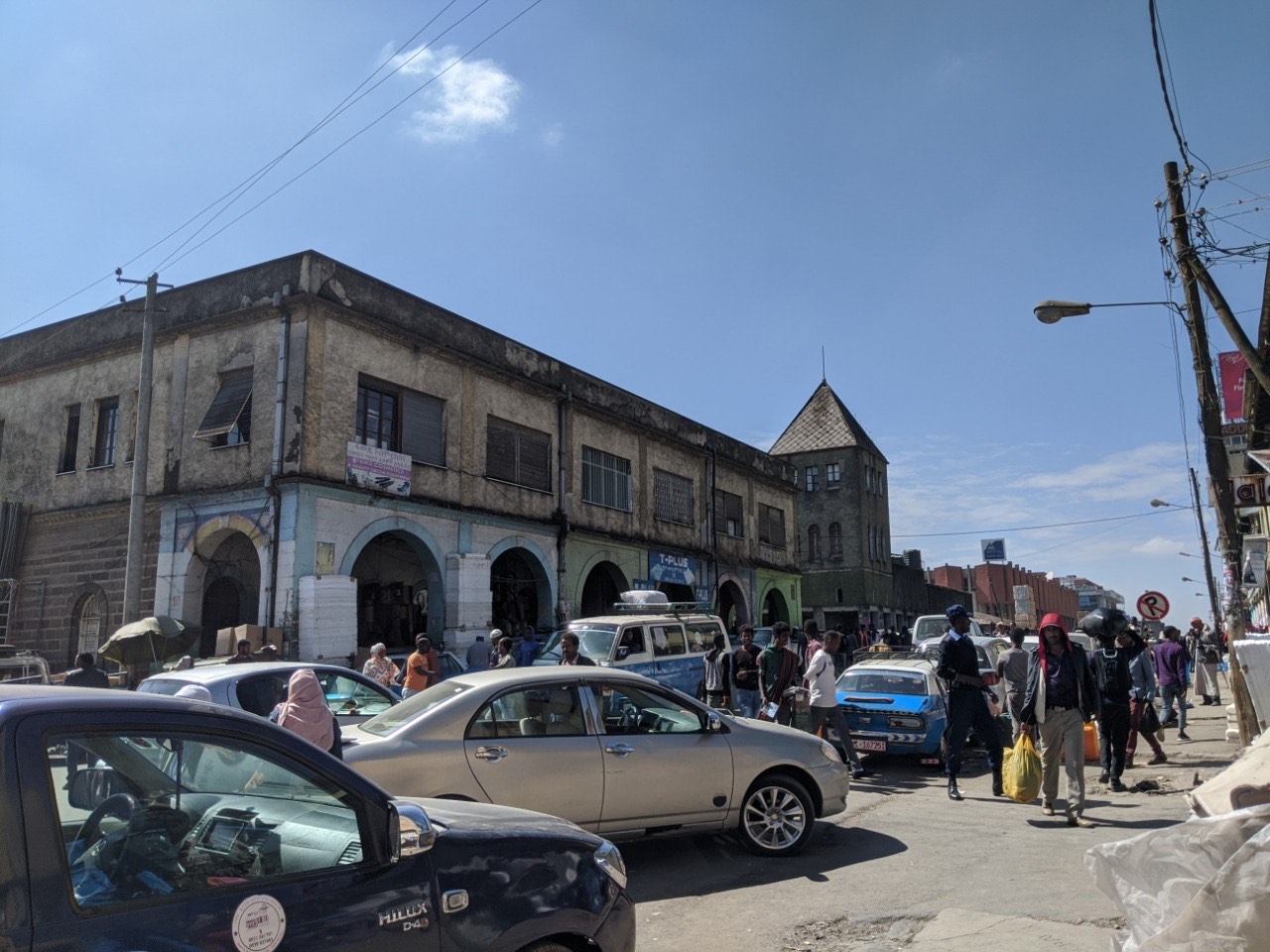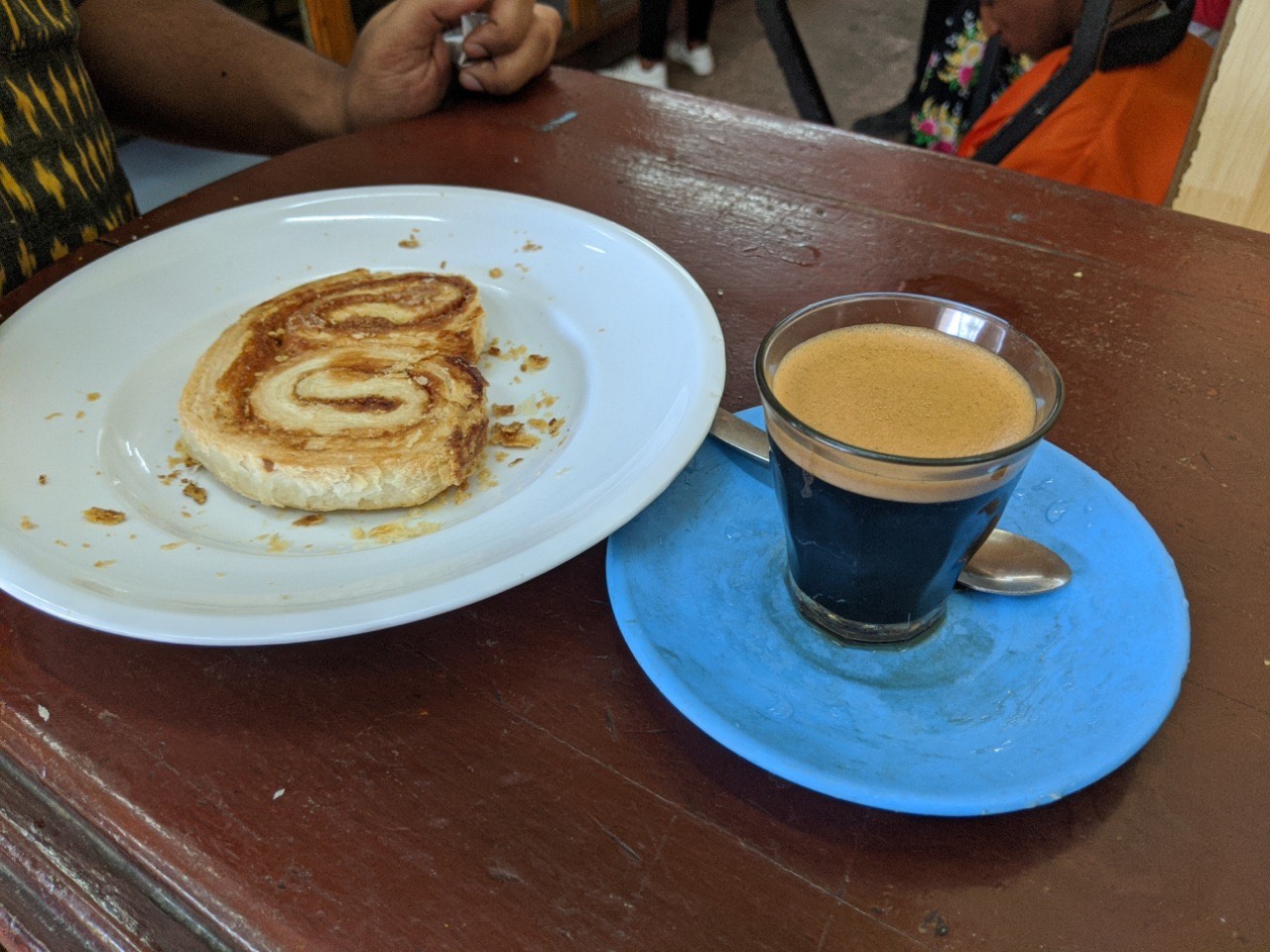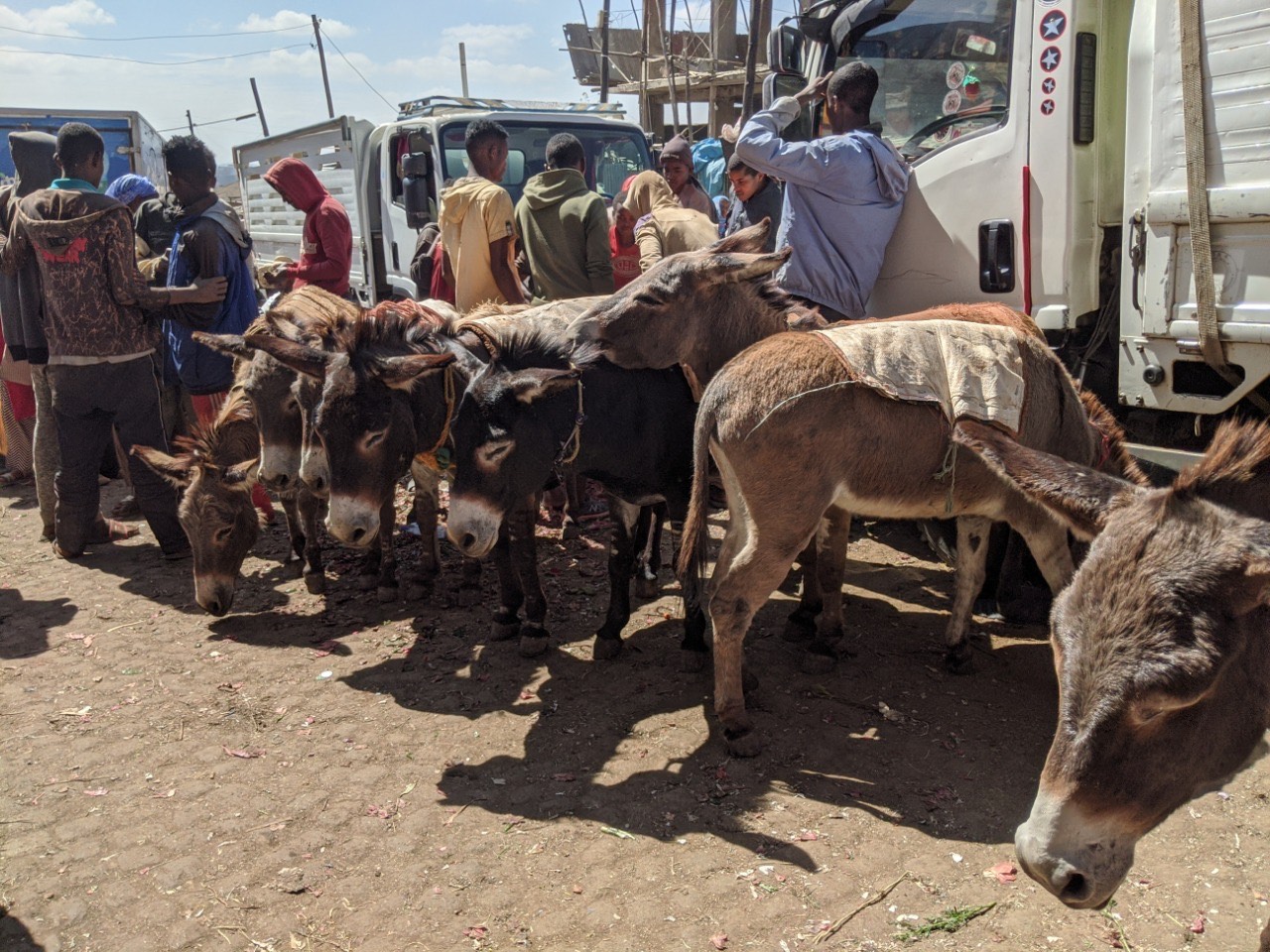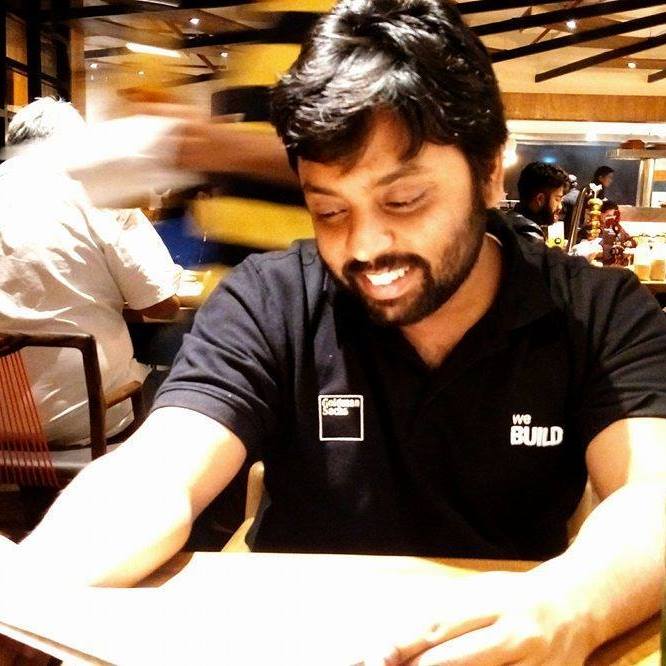About Addis Ababa
12/03/20 02:30

Months before the trip starts, weeks before the first ticket is booked, and days before budget is chalked down for the trip, I vicariously live in that city. Through Google Maps and Bookings and Agodas I visit and revisit the city through tip of my fingers. I zoom in the streets till the neighbouring shops are inch apart on screen and then track the streets through junctions and alleys. I often lose track at the crossing and start over again at some other corner. Sometimes I mark a store or cafe to visit. I know very well that it will mostly not make the cut in final itinerary.
But Addis Ababa took me by surprise. Once the taxi rolled out of the parking lot and the manicured lawns of the airport, the city that hits you looks seemingly under siege. The airport is so located that you crash right into the heart of the city. Equally spaced, like a set piece, every 100 meters the men in fatigues are stationed with their automatic rifles. It is not the automatic rifles that scares you. It is the ease and the lack of tension in their arms with which they carry them. The rifles felt like an extension to their body, like you and me feel with our smartphones. A comforting presence between the fingers. The ease that comes with years of intimacy. You get scared of the intimacy they have with their rifles.
But people rarely notices this siege, as if they have inducted the intrusion in part of their daily routines. Behind the footpath it seemed like the city is under construction. High rises of grey and shuttered shops of blue and brown build a facade on both sides of the Main Street. The city and its identify is hidden behind them in the alleys. To be fair this is where modern cities hide. In the sois of Bangkok, hems of Saigon and by-lanes of Kolkata. In Addis Ababa though, these alleys have no name. That is what took me by surprise. I did not get to live vicariously and walk them through screen of my phone. I could not learn the neighbourhood of the places where I stayed. Maybe that was the only way the people of the city knew how to protect what was left behind.
The rundown taxis that are stripped of their last bit of interior apart from the seat cushions, jerk its way through the bustle of these unnamed lanes. In these lanes the residents from the neighbourhood spills over and reclaims every inch as their courtyard. So much so that you do not feel like an intruder, but merely a puppet on display. Amused people look at you tumbling your way through narrow streets. The corner plots on these small lanes are reserved for the houses with lawns. But the French windows of the houses are trapped behind metal bars to keep the social inequalities securely outside.
The cold wind packs a bite year long, but the rapid industrialisation is fights back with heat trapped in concrete. The hotels and apartments are still bereft of Air Conditioners or even ceiling fans. In their absences, the eerie silence is borderline claustrophobic. It is a city that lives in shadows after all. As the night fall, the darkness creeps over the footpaths. The street lights are only reserved for the highways. The alleys make do with the neons spilling from the apartments on both sides. The grocery stores in every lane is the oasis of light and life of these streets. They are overstocked with necessities and gallons of water bottles, curiously I was hard pressed to find a single shop that keeps a packet of match sticks. An ongoing supply chain crisis maybe.
Addis Ababa is one of the highest altitude capital cities in the world. The mountain air smells crisp and liberating but curiously scented with incense sticks. Look around in daylight and the fragrance can be attributed to the street corner shops that have come up with their own abridged coffee ceremony to adapt to speed of city life. The hour long traditional coffee ceremonies is reduced to few minutes. It is a tradition left behind only as a relic for tourists as locals would rather prefer a cup at the local cafe. The sugary concoction chinos and chiatos left behind during the brief Italian occupation has brought out the infidelity of the local taste buds. The bitter concentrate of dark roasted beans that was a staple through thousands of years have been sidelined to the fringes of tradition.

Growing up in India, and fantasies about Europe taught me cities are about brick and mortar. It is about iconic landmarks and old buildings with grand architecture. It is about facades. Maybe many cities are about all of them, the grandness of history imbibing you with humility. But cities can also be about spaces and how they evolve over time but retain the same soul. Mercato, the central market in Addis Ababa is new, at least on the face of it. The makeshift shops are only few years old. They are stockpiled with street fashion imported en-masse from Southeast Asia. The cafes, the restaurants and the wholesalers are in business only for decades. Shops were razed down, new came up in their place. As war ravaged, the bazaar moved from place to place and occasionally shut down too. Nothing in that market was even a hundred years old, but the market itself was thousands of years old. The verve of the city was not associated with anything tangible, but routine that transcends through ages of time.
As you walk over the refuse of the wet market, the spillover leaves and hay over the years make a cushion for you to walk upon. It squishes a bit under your feet, it gives a little. Amidst the noise and the bustle, you are irrationally scared that floor will sink and you will drown in the leftovers of history. So you trod carefully, no more an intruder into the lives of these Ethiopian people. You trod carefully because they are not amused with you anymore, they are slowly ignoring you. Indifference is how a city inducts you into their culture. But few steps ahead, the market abruptly ends. You are back on the concrete street with the high-rises towering all around you. You are more sure of your footing. You no more fear of sinking in the ground, but the hardness of the concrete hurts your feet a little bit.

